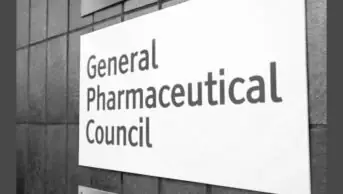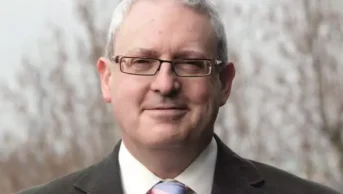
Shutterstock.com
There is “insufficient evidence” that proposals to introduce revalidation for pharmacy professionals will improve patient safety or provide more support to pharmacy professionals themselves, the Royal Pharmaceutical Society (RPS) has said.
The comments were made in response to a 12-week consultation on the issue which closed today (17 July 2017).
Proposals included reducing the number of continuing professional development (CPD) activities from nine to four and adding the requirement for pharmacists to conduct a peer discussion and reflective account against one of the revised and simplified standards for pharmacy professionals.
Records would then need to be submitted to the General Pharmaceutical Council (GPhC) on an annual basis alongside declarations for renewal of registration.
The consultation, launched by the GPhC in April, sought views from members of the public, patient representatives, pharmacy professionals and professional leadership organisations.
But the RPS expressed concerns that the framework was not robust, future-proof or flexible enough to support pharmacists in newer roles, such as pharmacists in GP practices or those in non-patient facing roles.
In its official response, the RPS said: “The framework is too focused on process, rather than judging whether the standards for pharmacy professionals have been met. The revalidation process also needs to better distinguish between pharmacists and pharmacy technicians to reflect their differing career pathways and roles.”
The RPS said it supported a “simplified approach” to CPD recording, including reducing dual recording. It referred to its CPD pilot, conducted in 2016, on the use of professional development frameworks, portfolios and assessment tools to support continuing fitness to practice.
The Pharmacists’ Defence Association (PDA) suggested that, because the proposed framework did not contain a sufficiently rigorous process or the requirement for a formal appraisal by a senior pharmacist, it should be referred to as CPD instead.
Its statement said: “The public might reasonably expect the term ‘revalidation’ to mean that the GPhC is validating once again … that its registrants have been formally assessed as fit to practise in a modern context.” It said that as a result, the term may “provide assurances beyond those justified by closer examination of the framework”.
Among a number of recommendations, the PDA said the review of records submitted by GPhC registrants should be conducted by pharmacists, not pharmacy technicians or lay persons and that a separate revalidation framework should be developed for chief pharmacists, superintendent pharmacists and pharmacy owners “to assess whether or not they are (and remain) fit and proper persons to hold their positions of responsibility”.
The Pharmaceutical Services Negotiating Committee, while signalling overall support for the proposed changes, expressed concerns about the ongoing cost, both in terms of money and effort, of the annual submission of CPD records, including the additional peer discussion and reflective account (supported by findings in the evaluation of the pilot by Solutions for Public Health 2017).
It pointed out potential difficulties for independent pharmacy contractors with one pharmacy or a very small number of pharmacists, in terms of identifying a suitable peer for peer discussions.
The Association of Pharmacy Technicians UK, who engaged with its membership through national consultation events, also expressed concerns about the peer discussion and reflective account saying “there was some anxiety among members”.
“There was a view that peer discussion could prove challenging and issues such as identifying a suitable peer and ensuring that peer discussion is carried out correctly were raised,” a spokesperson said.
The trade associations representing community pharmacies in England (National Pharmacy Association, Company Chemists’ Association and the Association of Independent Multiple Pharmacies) called on the GPhC to set out clear timelines for the review and follow-up period, emphasising that success in the early phase would depend heavily on the quality and timeliness of feedback given to registrants.
Members of the associations’ working groups, who took part in pilot versions of the new system, found the new approach to CPD recording straightforward and the additional peer discussion and reflective account beneficial for their professional development, they said in their response. However, suggestions were made about clarification of some of the terms used, such as “planned” and “unplanned” CPD entries, and ensuring the new system has integrated anti-plagiarism software.
However, the associations said they believed the new approach to revalidation would be more engaging and meaningful to pharmacists and pharmacy technicians and will give a greater sense of assurance to people using pharmacy services. “The new system should help to assure these users that the trust they place in pharmacists and pharmacy technicians is well-placed,” they said.
As part of this the GPhC is creating an integrated online recording tool so that pharmacy professionals can log their activities and renew their registration via one system.
Implementation of the new proposals is planned for 2018, but the GPhC will not start reviewing revised CPD records and new activities submitted via the new system until 2019 and 2020 respectively.


